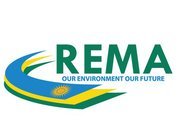Location
REMA is non-sectorial institution mandated to facilitate coordination and oversight of the implementation of national environmental policy and the subsequent legislation.
REMA has a key role to play towards the achievement of the national goal of sustainable development as set in out in the National Developement Vision 2020.
The alarming rate of environmental destruction as a result of population pressure, serious erosion, pressure on natural resources, massive deforestation, pollution in its various forms etc. necessitated the Government, to form REMA to coordinate, supervise and regulate environmental management for sustainable development in Rwanda.
Mission of REMA
To promote and ensure the protection of the environment and sustainable management of natural resources through decentralized structures of governance and seek national position to emerging global issues with a view to enhancing the well-being of the Rwandan people.
REMA Vision
All sectors of the Rwandan Society value and undertake sound environmental management and rational use of natural resources in order to contribute to the national aspirations for sustainable development.
Responsibilities of REMA
As stipulated in the Law N° 63/2013 of 27/08/2013 determining the Mission, Organization and Functioning of Rwanda Environment Management Authority (REMA), REMA has the following main responsibilities:
- To implement Government environmental policy;
- To advise the Government on policies, strategies and legislation related to the management of the environment as well as the implementation of environment related international conventions, whenever deemed necessary;
- To conduct thorough inspection of environmental management in order to prepare a report on the status of environment in Rwanda that shall be published every two (2) years;
- To put in place measures designed to prevent climate change and cope with its impacts;
- To conduct studies, research, investigations and other relevant activities in the field of environment and publish the findings;
- To closely monitor and assess development programs to ensure compliance with the laws on environment during their preparation and implementation;
- To participate in the preparation of activities strategies designed to prevent risks and other phenomena which may cause environmental degradation and propose remedial measures;
- To provide, where it is necessary, advice and technical support to individuals or entities engaged in natural resources management and environmental conservation;
- To prepare, publish and disseminate education materials relating to guidelines and laws relating to environmental management and protection and reduce environmental degradation risks;
- To monitor and supervise impact assessment, environmental audit, strategic environmental assessment and any other environmental study. REMA may authorize in writing, any other person to analyze and approve these studies.
Members:
Resources
Displaying 1 - 1 of 1Practical Tools on Land Management - GPS, Mapping and GIS: Rwanda
Sustainable land management best practices on integrated approaches to natural resources management covers all the major rural land use systems including agriculture, rangeland, and forestry. Environmental sustainability and sustainable livelihoods can be achieved only through a holistic approach in which different resource users and decision makers come together to agree on common objectives that also maintain the ecological integrity of the resource base.In Rwanda, farmers integrate both crop and livestock operations.


